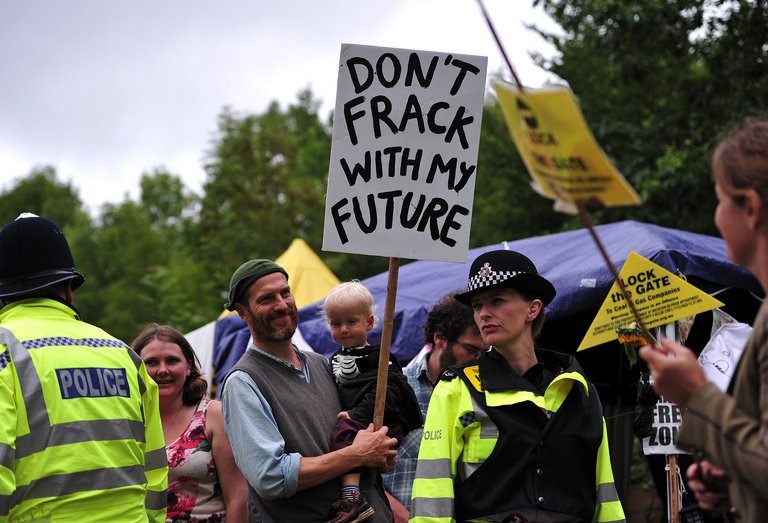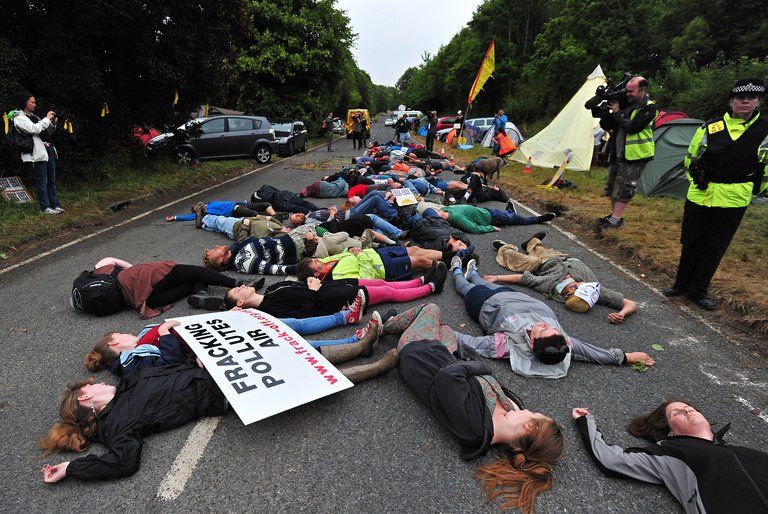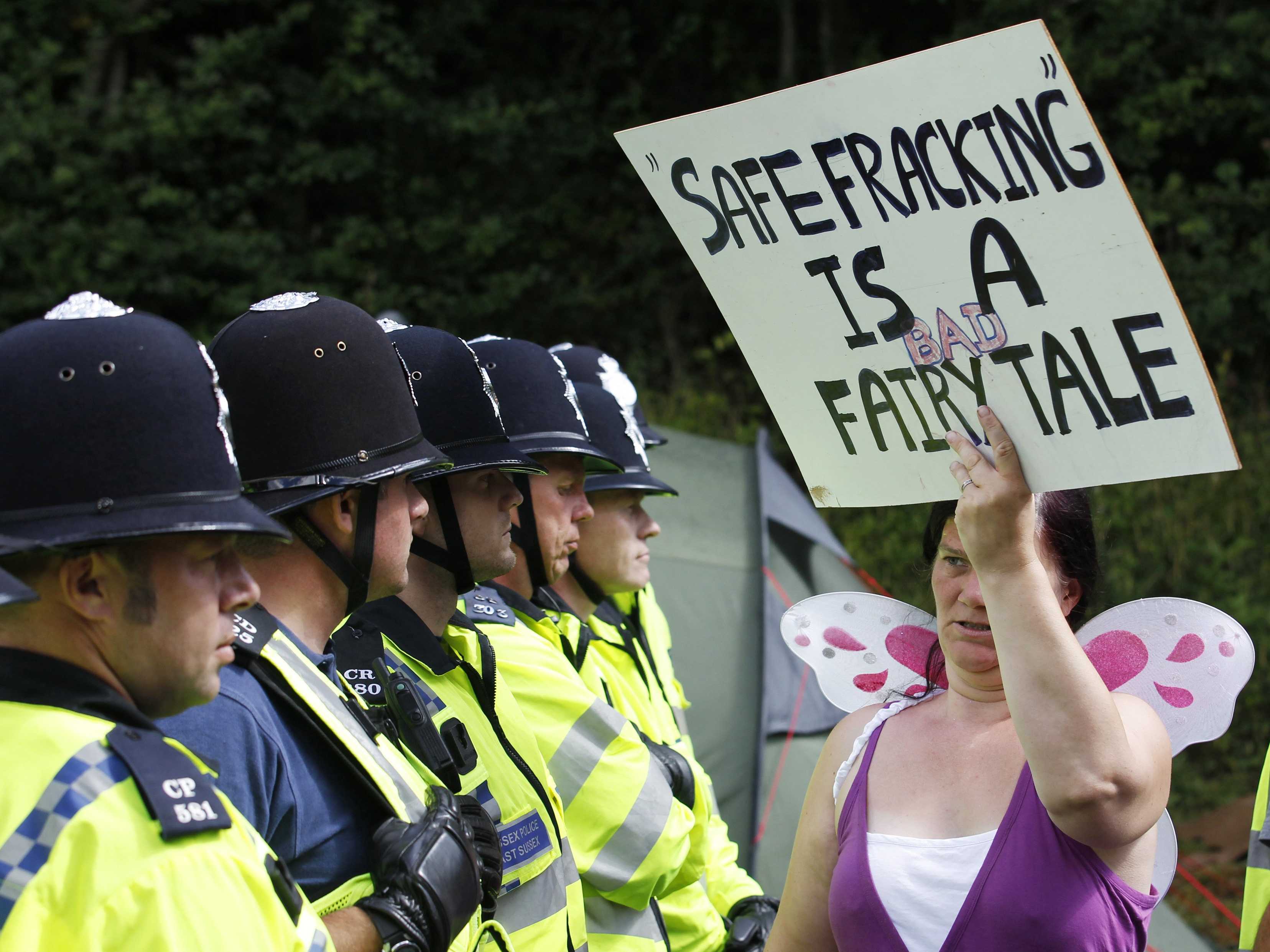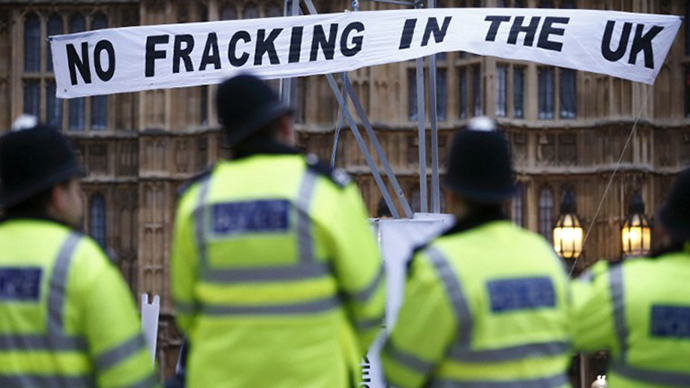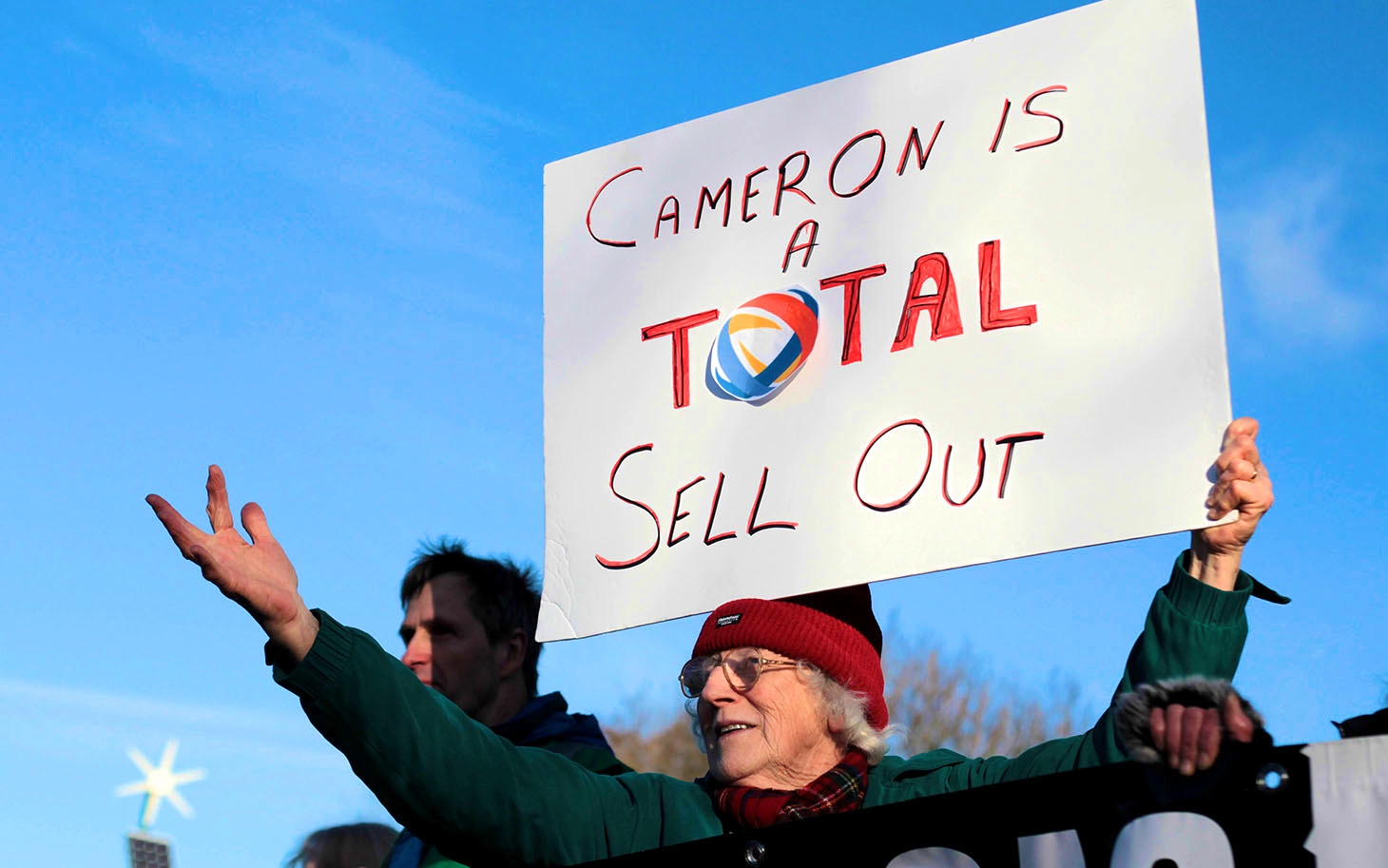
“Pursuing fracking is illogical, both ecologically and economically,” asserts Lubo Jankovic, professor of Zero Carbon Design at Birmingham City University in the U.K., where he heads research into zero-carbon buildings.
“Fracking is a temporary technology that the U.K. government suggests will be ‘a bridge in our transition to a green future.’ But this fossil fuel industry will not be online until the 2020s," he says, "and by 2050 we are obligated to reduce emissions by 80% – so by the time it starts we will need to urgently replace it.”
Jankovic questions the government’s logic in blunt terms. “Why throw away money to develop fracking now, when it can be spent prudently for renewables for the long-term?"
Jankovic and his team’s research confirms there is a phenomenal amount of potential renewable energy to tap. According to studies, the earth receives as much solar radiation in 50 minutes as humanity uses in a year. "Yet currently, most of this energy goes over our heads,” he says.
Both the economic and ecological arguments against fracking undermine the government’s goal of igniting a "British Shale Gas revolution" – which faces broad opposition here, not least because of threats to groundwater.
Further shattering the case for fracking is the abundant research showing that current renewable technologies could fill the carbon gap.
“It would be possible to cover the U.K.’s needs, without fossil fuels or nuclear, with the right combination of support for renewable and much more efficient use of energy,” Danny Chivers, a climate researcher, activist and author, tells me.
On a global level, Chivers has mapped the ways humanity, using existing technology, could meet its energy requirements.
The Two Energy Futures diagrams maintain that “the barriers are political rather than technical towards a cleaner fair future.” Summarizing his research, Chivers explains that the government has greatly cut plans designed to reduce energy consumption – in one case, by changing housing insulation rules so that they are based on loans, which reduced home insulation in Britain by 80%.
“The scheme is poorly targeted, assuming those often in fuel poverty would want to get into more debt,” explains Chivers, whose research shows 20 million homes to be poorly or uninsulated, with estimations that only 400,000 are being insulated annually. “With these measures," he says, "we will not get anywhere soon.”
Now, the political obstacles to boosting renewables have become even steeper due to the U.K. government’s eagerness to get out in front of the Shale Revolution.
“It includes talking up the industry, loosening planning regulations, pushing the industry’s PR, creating a favorable tax regime and giving the message [that] fracking will be supported in the future,” Chiver concludes, sharing expertise he drew from editing a fracking special edition of New Internationalist.
Without open government support for the industry, it is unlikely that the French oil giant Total would have invested in U.K. shale exploration – so far the only major oil company to do so. Greenpeace highlights the hypocrisy of the French company coming to England, since France itself outlawed the practice of fracking.
Chivers's research reveals how subsidies and tax breaks have helped the government back big oil, fracking and non-renewables. This policy includes £2.3 billion set aside for cleaning up nuclear power and £300 million designated as tax breaks for fossil fuel companies.
In contrast, last month the British government announced it is cutting subsidies to wind farms – a decision in part welcomed by the industry, which is strong enough to survive without the added money. However, the cuts are expected to lower the number of community-based wind farm projects.
Chivers points to the "capacity payments" being made to energy generators, which are currently being finalized by the government and which will essentially become a subsidy for new gas power stations. The tight connections between the U.K. government and the fracking industry have been well documented.
And recent revelations from Russia Today further demonstrate how deeply [the government's support](http://rt.com/news/uk-government-fracking-industry 829/) for the industry runs, with evidence that it collaborated on statements, coordinated strategy and even shared lists of oppositions to target.
“As well as misleading, the government have turned the police into a private army for the industry,” says Tina Rothery, a campaigner for the local Residents Action On Flyde Fracking.
“This policing comes at a ridiculous expense. Furthermore they are twisting the narrative," she adds. "It is the fracking industry that is costing the country millions – maybe now billions – on policing, not those who want to protect the country.”
Critics of fracking accuse oil companies of "externalizing" their many costs, with policing being just one example. “We need to stop supporting non-renewables, as [those industries] don’t pay for climate change, clean-ups and the cost of their day to day pollution," says Chivers. “Instead these costs are a cost to all of us. This is even the case with major oil spills, [where] the oil companies may pay a minor fine in terms of their profits."
In response to the government's recent announcement that it will give councils cash incentives if they decide to frack, Rothery says: “This money is bribery. The councils where fracking is being pushed are suffering the worst cuts, such as Lancashire, which is on its knees. It gives councils a difficult choice, and [they] may welcome the money regardless of the risk.”
Protests and direct actions against fracking in England are on the rise. In December, one of numerous "block the gate" actions occurred in Barton Moss, in which a wind turbine blade was used to halt work at an exploratory fracking site. The turbine “was given to [the company] Igas as a Christmas present, to show there are alternatives outside of fracking,” adds Rothery.
Meanwhile, evidence of success using renewables is growing – such as in Portugal, which generated 70% of its energy with renewable power during three months of 2013. And in Australia, a study shows renewable energy is in fact cheaper than fossil fuels, without any green subsidies.
Calls for increasing global investments in renewables have recently been made by Christiana Figueres, Executive Secretary of the UN Framework Convention on Climate Change, who advocates an increase from the current $300 billion annually to $1 trillion within a decade to avoid all-out climate disaster.
The green industry group RenewableUK issued a recent press release about tidal energy and its emerging possibilities as a powerful industry in Britain – supplying up to 75% of the country's energy needs. But, it states, tidal power will only happen if the government sets the right subsidies and tariffs combined with long contracts to bolster business confidence.
The report suggests if the U.K. government "pushes the tide" in the same way it has encouraged fracking, by 2035 it would be a £6.1 billion industry, producing a sizable proportion of Britain’s energy needs and 19,000 new jobs. Additionally, and in contrast to fracking, the projections would only increase looking ahead to 2055, 2075, 2095 and beyond.
3 WAYS TO SHOW YOUR SUPPORT
- Log in to post comments

